- News
- Reviews
- Bikes
- Accessories
- Accessories - misc
- Computer mounts
- Bags
- Bar ends
- Bike bags & cases
- Bottle cages
- Bottles
- Cameras
- Car racks
- Child seats
- Computers
- Glasses
- GPS units
- Helmets
- Lights - front
- Lights - rear
- Lights - sets
- Locks
- Mirrors
- Mudguards
- Racks
- Pumps & CO2 inflators
- Puncture kits
- Reflectives
- Smart watches
- Stands and racks
- Trailers
- Clothing
- Components
- Bar tape & grips
- Bottom brackets
- Brake & gear cables
- Brake & STI levers
- Brake pads & spares
- Brakes
- Cassettes & freewheels
- Chains
- Chainsets & chainrings
- Derailleurs - front
- Derailleurs - rear
- Forks
- Gear levers & shifters
- Groupsets
- Handlebars & extensions
- Headsets
- Hubs
- Inner tubes
- Pedals
- Quick releases & skewers
- Saddles
- Seatposts
- Stems
- Wheels
- Tyres
- Health, fitness and nutrition
- Tools and workshop
- Miscellaneous
- Buyers Guides
- Features
- Forum
- Recommends
- Podcast
feature
Why are modern bike wheels so wide, and should I buy direct from China? Your wheel tech questions answered
Whether you’re a pro cyclist, self-confessed weekend warrior or somewhere in between, the wheels that you ride have probably changed quite a lot over the last 10 years or so. In this feature and video we’ll be debunking wheel myths, cutting through the marketing jargon and answering as many of your questions as possible, including whether carbon spokes are the future, whether you should use your carbon rims through winter and whether it's a good idea to buy direct from Asia...
Q: Why are modern wheels so wide?
I’m not trying to start a rim brake vs disc brake debate here, but the fact is that for one reason or another, most bikes being sold these days have disc brakes.
Clearly, this has meant wheels have had to change quite a lot to accommodate them. One of the benefits of disc brakes is that wheels are no longer restricted by the confines of a rim brake calliper, which could typically cope with a tyre no longer than 28mm, and many even narrower than that.
These days wheels are much wider, and there’s rims out there such as this Roval Rapide front wheel pictured below that measures a whopping 35mm at its widest point. Why might you want your wheel to be so wide, though?
> Are expensive carbon wheels worth it?
Well, the main reason is stability. In the olden days, carbon rims were V-shaped because that’s just what could be manufactured - however, it quickly became accepted that a U-shaped profile resulted in less buffeting in crosswinds. The idea of rims getting wider and wider is basically a continuation of this, and is all about trying to reduce stall (more on that later).
The fact that tyres have been getting wider is also a contributing factor. Put a 28mm tyre on a classic 19mm width rim, and you get a 'lightbulb effect' which could mean the tyre has less support when under load in corners.
Q: Should the rim be wider than the tyre?
That lightbulb effect also isn’t particularly great for aerodynamics or rolling resistance, with many brands claiming that for ultimate speed, your wheel rim should actually be wider than the tyre.
You might have seen manufacturers talking about the rule of 105 before. This states that for maximum efficiency, the widest point of the rim should be around 105% of the tyre.
Of course, this isn’t an exact science, but most wheel manufacturers do seem to agree that a wheel slightly wider than the tyre is best for performance.
Q: What is the best depth for all-round/everyday riding?
This is an age-old question, and the answer will depend on the terrain, weather conditions and your priorities as a rider. I personally think that most riders will have at least some interest in performance or efficiency, so I’d recommend going for around a 40mm deep wheel. That’s what I would personally feel comfortable riding year-round on both flat or hilly courses.
Saying that, wheel tech has come on quite some way in the last decade or so, which means many riders can get away with deeper than that. Some 50mm deep wheels are now competitively light, and aren’t going to leave you clinging on for dear life when the wind picks up.
Q: Can I use my carbon wheels through the winter?
A question that is sure to start a debate in the comments section!
> How to beat winter - Tips, tricks and clothing advice
The mass takeover of disc brakes means that you’re no longer relying on those pesky carbon braking surfaces which had varied success in the wet, to put it politely. You're also not wearing out the rims on your expensive wheels, so it's now far more doable to use your fancy wheels year-round.
So to answer the question: yes, you can use your carbon wheels in less than ideal conditions. Although, do bear in mind that you will probably have to replace the bearings after a year or two if you use them heavily. If your wheels have aluminium spoke nipples then they can also corrode over time.
If you do plan on using a wheelset during the winter months, it might be worth looking for a set of wheels with brass spoke nipples, which are much more resilient to crap conditions.
My personal preference is to use cheaper alloy wheels with a cheaper set of discs, more hardy tyres and set up tubeless for winter riding. I save the fancy carbon wheels with latex inner tubes and racier tyres for those rides I want to go as fast as possible on, and get a psychological boost from the extra speed on that first sunny ride of the year.
Q: Are carbon spokes better?
Something that has become increasingly popular on recent top-end releases like this Cadex 65 wheelset is for the spokes to be made of carbon. Carbon fibre, as we all know, is a bit of a wonder material, and has an absolutely insane strength-to-weight ratio.
Therefore, a wheel with carbon spokes can often be lighter, potentially stiffer and sometimes even allow the manufacturer to reduce the spoke count of a wheel, while maintaining its strength. But, what are the negatives?
Well, speaking to a few brands has revealed that there are plenty of drawbacks, as well as undeniable positives. Firstly, they’re quite a bit more expensive than steel spokes, and that price is going to be passed on to the consumer. Secondly, no one was exactly maxing out the tension of steel spokes, so if a carbon spoke wheel is stiffer then it was probably possible to produce it with steel spokes, albeit slightly heavier.
Thirdly, there is a school of thought that suggests carbon spokes aren’t as aero, because they're fatter than bladed steel ones.
The wheel brand Hunt, for example, has released the graph above where the blue line represents the carbon spoke offering and the green line an identical rim with steel spokes. As you can see, the drag force in grams on the Y axis is very marginally less for the steel spokes.
So, should your next wheelset have carbon spokes? Well, maybe...there’s a time and a place for carbon spokes, and that is only on wheelsets for racing on in my opinion.
I’d say that if you’re looking for the ultimate in low weight, high performance and high stiffness then yes. Carbon spokes allow wheels such as the Cadex Ultra to push the boundaries of performance - however, what I wouldn't like to see is all wheelsets making the transition to carbon spokes. They can make a wheel feel harsher, push its price up and make serviceability more arduous, in my opinion.
Q: Are expensive wheels any better than the budget ones?
To answer this, I’m going to point you in the direction of our wheel testing videos, where we’ve pitted alloy shallow section wheels against deep section wheels, and some value carbon wheels against the most expensive in the business (take a look and have a read below).
> Are expensive carbon road bike wheels worth the money?
Spoiler alert... deep wheels do make a measurable difference if you’re riding flats and descents, but the gains diminish as you begin to spend more. If you want maximum performance then you’re probably looking at spending around the £1,500 mark or more - but rest assured that if you turn up to a race with a cheaper set, a bit of luck, the strongest legs and the best race craft, then you’re not going to get robbed of victory.
Q: Should I buy from China or stick to the more established brands?
One of the most popular questions from you folks was whether you should buy from China or stick to the more established brands. Well, as many of you will know already, most carbon wheels will come from the Far East, no matter what label they have on them. This does beg the question how much more am I getting buy buying from a better-known brand?
My personal opinion is that there are some very good options out there that you can buy directly, but you should proceed with caution. I’ve recently been using a set of custom-built Light Bicycle wheels which are ridiculously good value and haven’t skipped a beat. They really are the match of wheels from the best in the business.
However, I personally draw the line at ordering wheels from the likes of Aliexpress or Wish. After all, the results could be pretty catastrophic if something were to go awry. That’s not to say all the wheels coming from these sites are bad, but often it’s the quality control and warranty situation that can be a bit more lapse. I’m personally not prepared to take that risk.
> Best road bike upgrades under £50
So, in conclusion: yes, buy direct from China. But... do your research, read the reviews, go careful, look for the warranty info and watch out for the customs charges!
Why do some wheels have wavey profiles?
It’s time to revisit the mysterious land of stall for this one.
The likes of Zipp and Princeton Carbon Works are just two brands that have opted for this wavy rim profile, often referred to as a sawtooth profile. They do it for two reasons - crosswind stability and aerodynamic performance - with the idea being that the wheel performs like a deeper wheel and behaves like a shallower one. How does that work, though?
Imagine you’re riding in a crosswind. The wind from the side is pushing against your wheel, it’s annoying you don’t have a tailwind but all is good in the world. Then suddenly, your front wheel snatches away from you. Your life flashes before your eyes, and you thank your lucky stars you’re not sat in a ditch.
> Hitting 100kph on a bike — what does it take to break this elusive cycling speed barrier?
What’s actually happened at this moment is that the wheel rim can no longer sustain the build-up of pressure on the side. All of this spills over, everything goes very turbulent and the wheel is sucked back into this area of now very low pressure.
The deeper the rim, the more the pressure can build up. In effect, there's a bigger wall to block it, so more of a consequence when it releases. The idea of these wavey rims is that they repeatedly shed vortices, allowing this pressure to release in lots of little bits instead of one big, brown bib-inducing chunk.
How do they put spokes in wheels without spoke holes in the rim bed?
Magnets. That’s your answer.
So, as more and more wheels are being run tubeless, we’re seeing more wheels without the spoke holes in the rim bed. That means you don’t have to use rim tape, and in the case of these Princeton Carbon Works Alta wheels it makes them really light!
However, to get the spoke nipples in without these holes is quite the mission. Each nipple is fed into the rim through the valve hole, and then a magnet is used to pull it through each hole. To make things harder, aluminium nipples aren’t magnetic. This means a bit of the steel spoke is attached to each one, which can then be removed and replaced with the actual spoke once the nipples are in position.
Will wheels become integrated like everything else?
I hope not! I’m assuming that this question is referring to the wheels themselves, rather than them being integrated into the bike frame. Although, we are already seeing the hubs, spokes and rims merging into one.
Lightweight and Mavic were some of the first to make this idea popular, but there are plenty of more modern releases, with some Syncros wheels being one example.
> Syncros Capital SL: one-piece carbon race wheels for gravel
Integrating the hub shell, spokes and rim does have some performance advantages such as stiffness and weight, but there is one major drawback. Break a spoke and you’ve just written off a very, very expensive wheelset!
In my opinion, these super integrated wheels should be left to the pros, and I’ll be keeping my fingers crossed that this kind of tech doesn’t trickle down into the mass market.
Is Hookless the future?
And our final question: Is hookless here to stay?
> What’s the difference between hooked and hookless?
I think it is. The bike industry tried to get us hooked on hookless a few years ago, and I think the main reason it failed was because we just weren’t ready.
Even in the last few years there have been some big changes. Road cyclists are much more accepting of tubeless, ETRTO standards have got much better and most people are now using wider tyres, which means lower pressures and fewer hookless accidents. There’s also a much larger selection of tubeless and hookless compatible tyres out there, and the lack of them used to be one of the main drawbacks.
As hookless wheels are not only lighter, but cheaper and easier to make, I don’t think it will be long before manufacturers have another concerted effort at making the transition. After all, it does work extremely well on cars.
If you’ve got any more questions then pop them in the comments section below, and we’ll try to answer them in the next wheel tech feature.
Jamie has been riding bikes since a tender age but really caught the bug for racing and reviewing whilst studying towards a master's in Mechanical engineering at Swansea University. Having graduated, he decided he really quite liked working with bikes and is now a full-time addition to the road.cc team. When not writing about tech news or working on the Youtube channel, you can still find him racing local crits trying to cling on to his cat 2 licence...and missing every break going...
Latest Comments
- Chris RideFar 2 sec ago
I know that in independent tests on 10 and 11 speed chains, the SRAM chains always came out bottom in terms of drivetrain efficiency. Lots of...
- quiff 5 min 57 sec ago
The comparison was between two things never intended to be used on a bike.
- perce 36 min 27 sec ago
You could get knocked down at midnight and the jury would believe a driver who said the sun was in his eyes.
- Simon E 51 min 44 sec ago
We'll have to disagree. It's as ugly as f..k. You can try putting lipstick on a pig but it's always going to be a pig....
- chrisonabike 1 hour 23 min ago
Well, send us a review when you've cycled it!...
- kingleo 1 hour 54 min ago
Two things are certain about the anti-cyclists, they are stupid and make up facts.
- KDee 2 hours 12 min ago
Funnily enough, my experience with Wahoo TCKR is that when that needed a new battery, it would also go in the bin. The battery locating tabs would...
- Backladder 2 hours 46 min ago
Since the driver used similar language it in not "likely" that he was caused harrasment alarm or distress by having it returned to him. (IANAL)
- underworld99 6 hours 36 min ago
Some more local knowledge :...
- eburtthebike 7 hours 53 min ago
“There is a road safety emergency in our region. As Mayor, I’m committed to tackling this issue."...

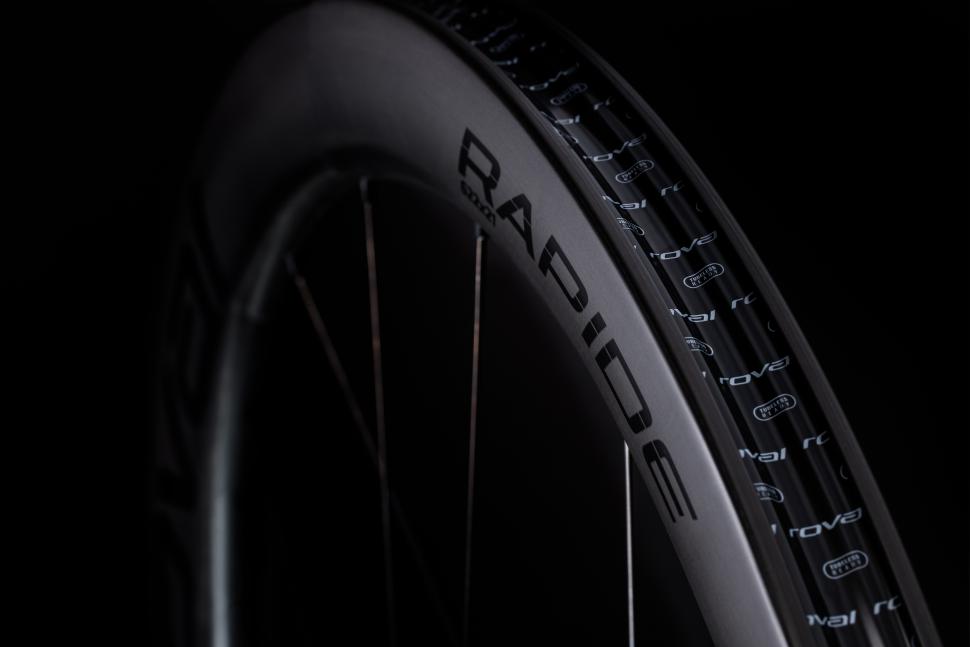
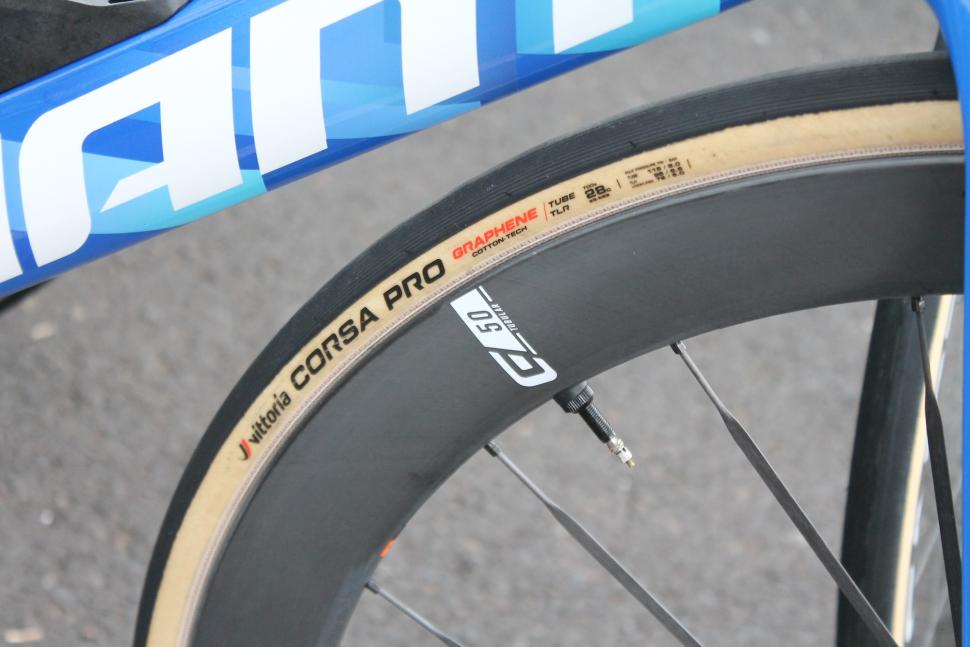
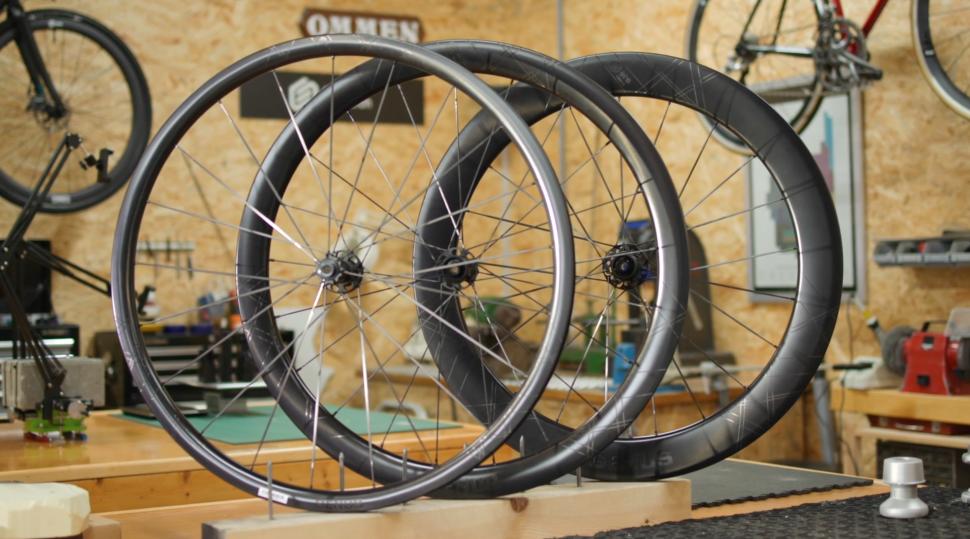
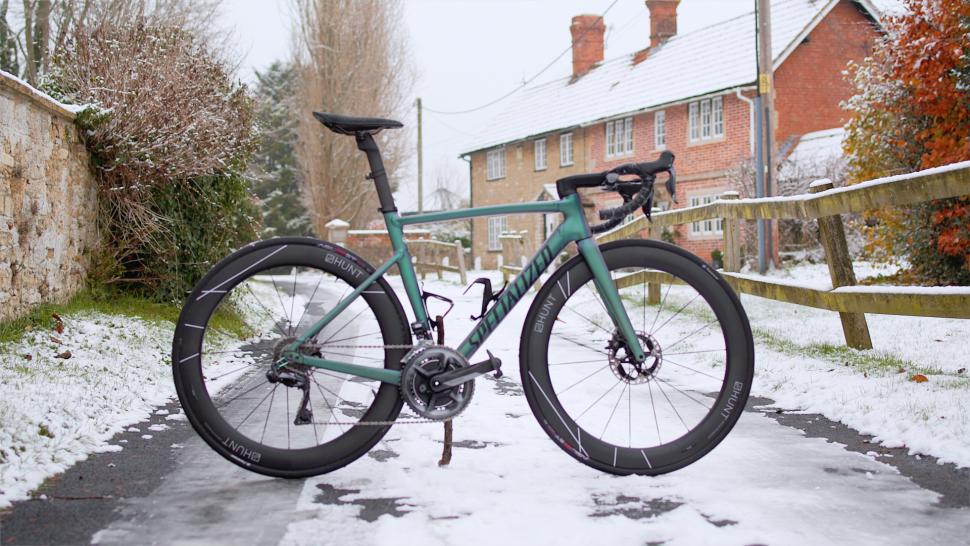





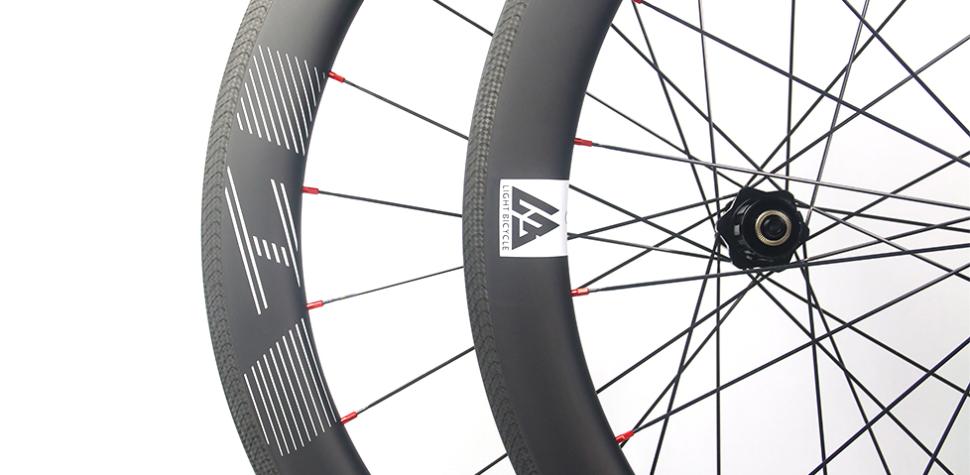
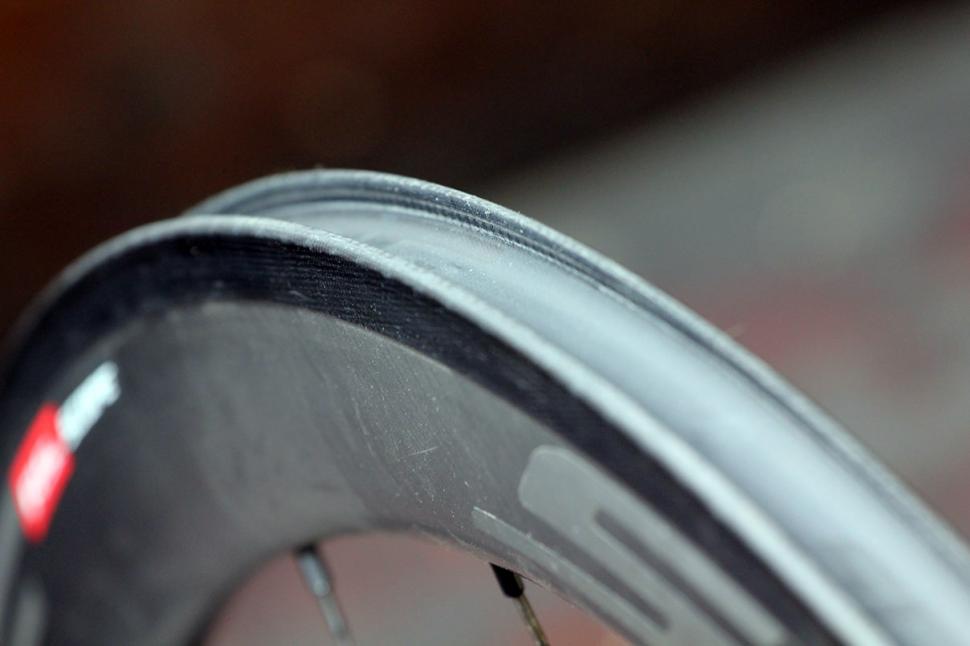
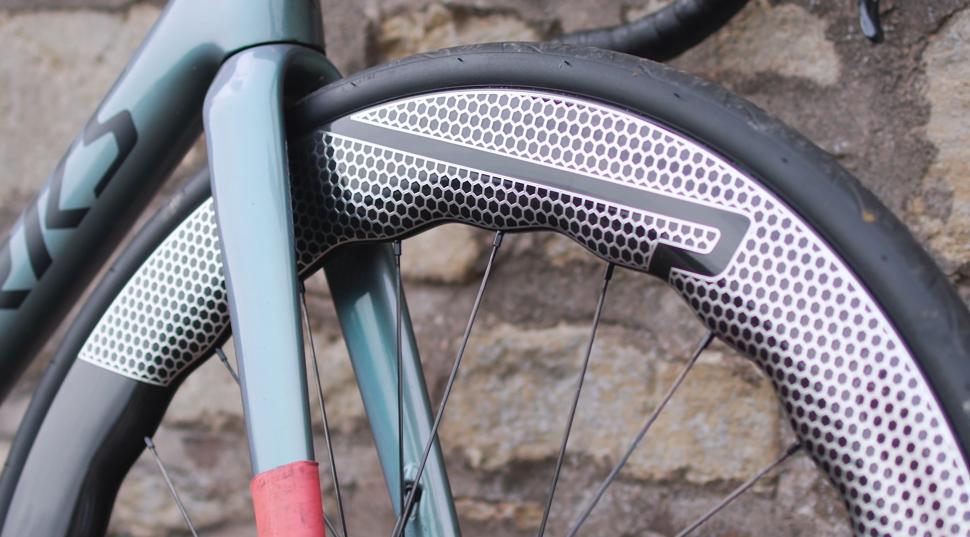

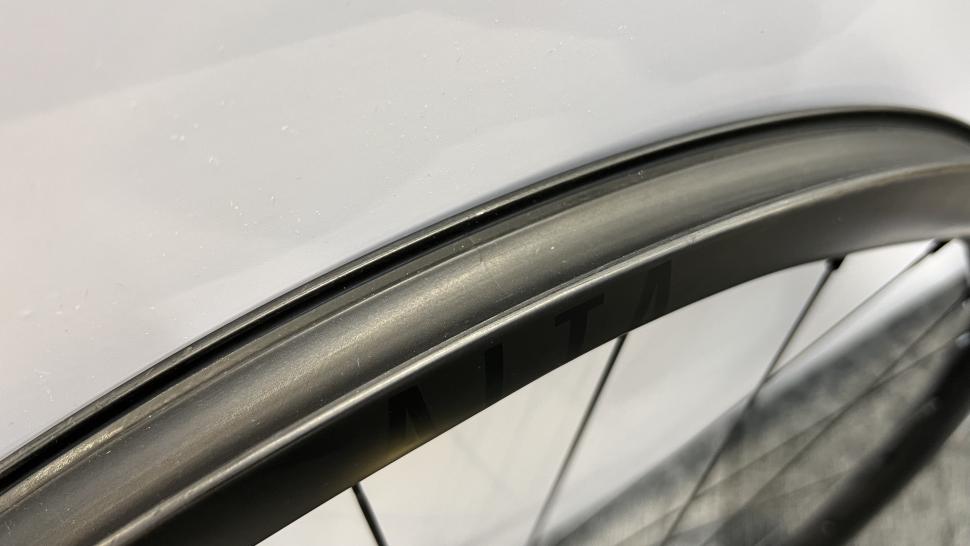
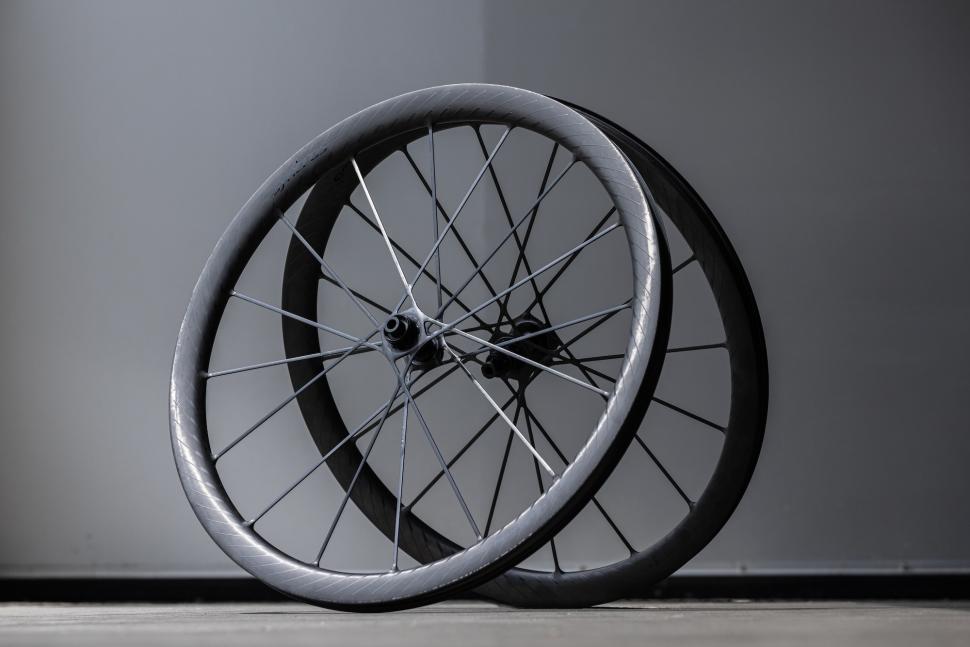
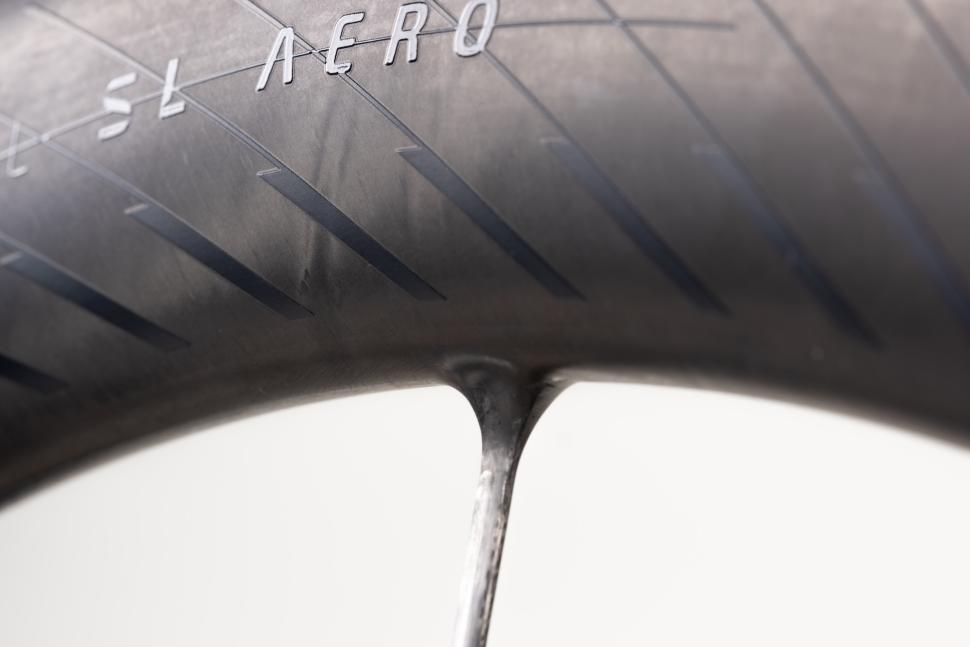
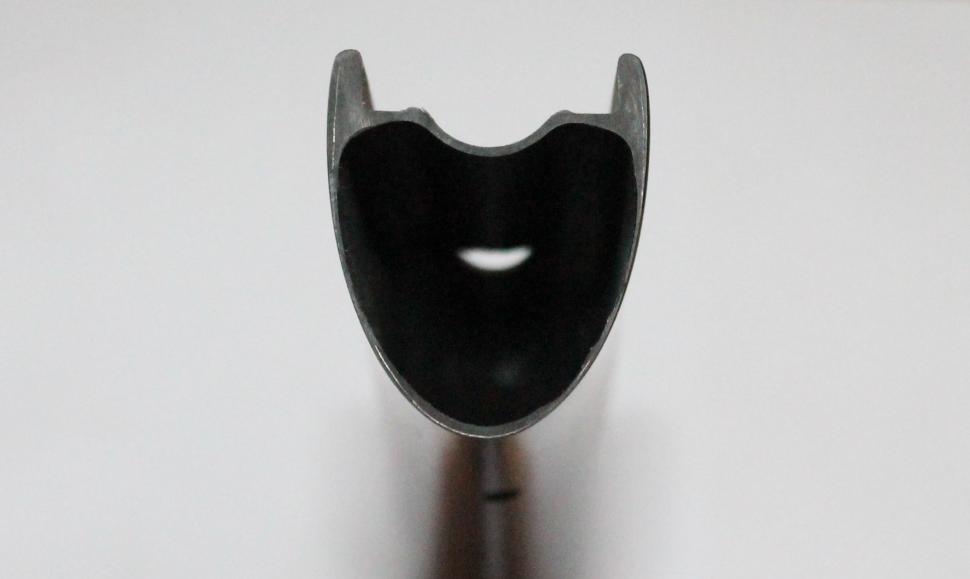
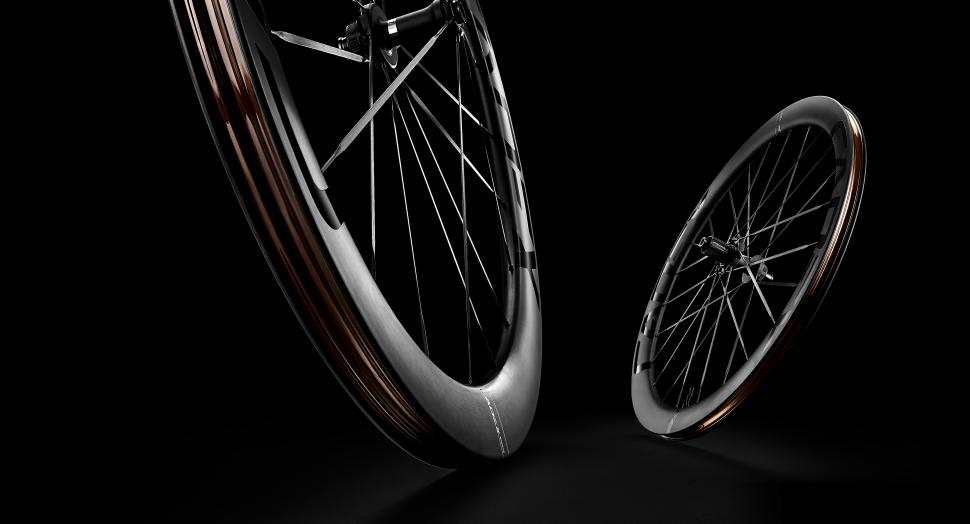
Add new comment
6 comments
Funny this rule never seems to apply to gravel bikes...
Yes, seems like another tyre myth to me.
Three decades of riding 26 inch mountain bikes wheels shod with up to 2.1 inch tyres, mostly on 17mm rims.
It's an observation, and it broadly applies to wheel/tyre setups generally, including gravel and MTB (yes, even those 26" ones mentioned below). Happened with my old 1 1/4" tyres on shitty old 13/14mm rims BITD just as it does now, the tyres are merely much, much better on average IMO. I'd hazard a guess that stiffer side walls "help" the rim act more like pivot then supple ones, but that would need testing.
Just because something works, doesn't make it optimal.
I agree except on the hookless stuff. Cost saving and so called better tire transition at cost of an easier blow out. The hookes make it safer whatever is told in case error margins add up in the wrong direction. Also most users don't have accurate pump resulting in a dangerous situation when sudden tire pressure builts up and far exceeds the safe pressure. Friend of mine had a run off on hookless tubeless wheels out of the blue. I'm riding hooked reserve wheels 34mm wide with tpu and max pressure 4.5 in back. Perfect tire rim interface and super comfortable. Lighter and same rr and no mess when needing to fix (1x in 15k km)
Hookless is also not a new idea. It was the standard until the 70s when we invented this new-fangled idea called a 'hooked rim' which (you guessed it) was better and faster because it held the tyre in and allowed the use of suppler side-walls..
The only winners are the manufacturers who get to make cheaper rims and then sell them at premium prices because they're "new" and "better". And we all get to pay 30-50% more for tyres because they're also "new" and "better"...